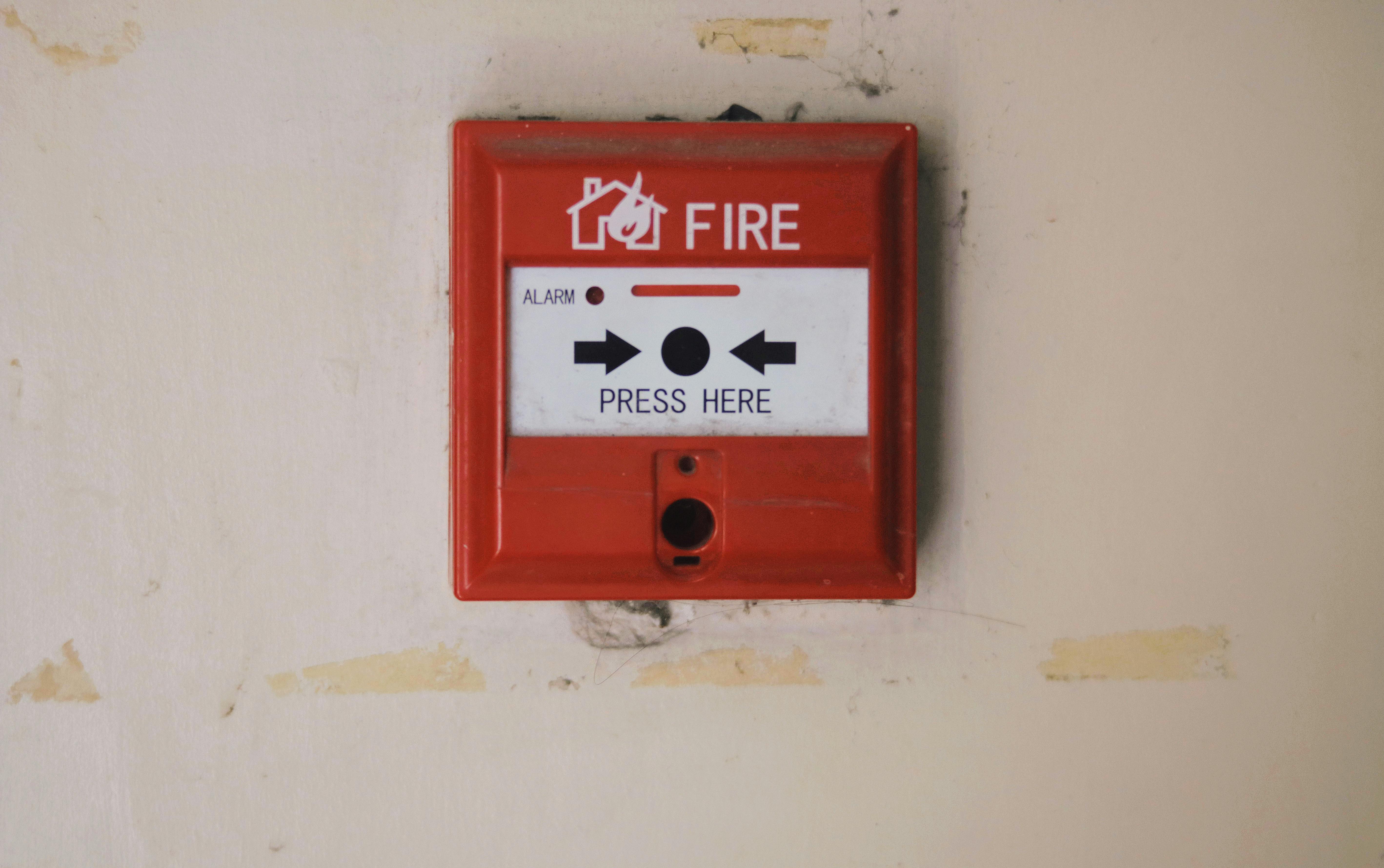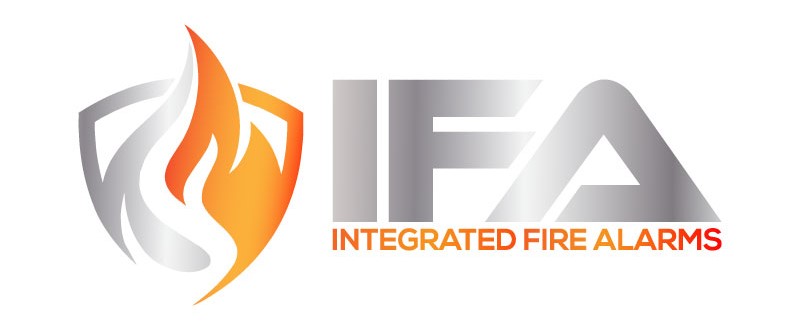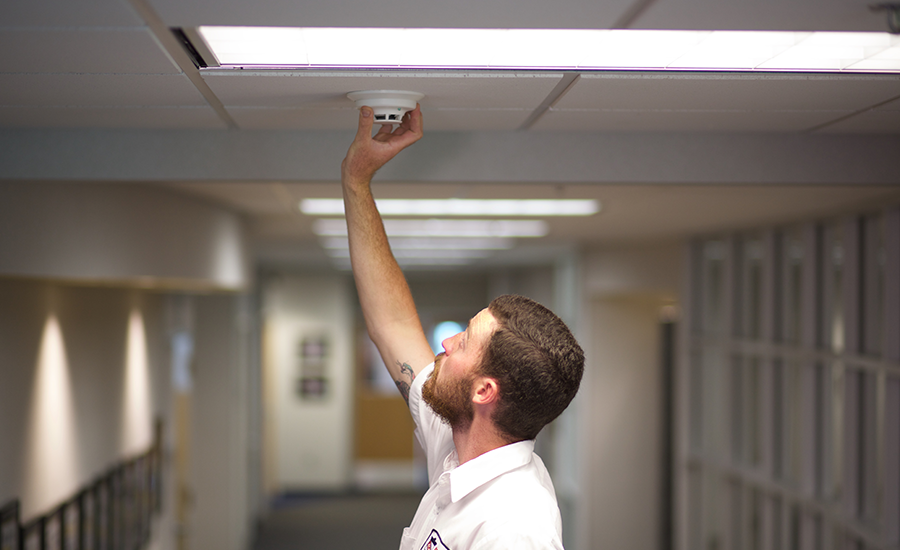
Image Source: Pexels
Residential fire alarm monitoring is an essential part of ensuring the safety of your home and loved ones. It not only provides early detection of fire hazards but also offers peace of mind knowing that help is just a call away. This comprehensive guide will cover the importance of residential fire alarm monitoring, its features, benefits, installation, and maintenance.
Importance of Residential Fire Alarm Monitoring
According to the National Fire Protection Association (NFPA), three out of five home fire deaths occur in homes without smoke alarms or with non-functioning alarms. This highlights the importance of having a reliable residential fire alarm monitoring system in place.
Early Detection and Response
A monitored fire alarm system detects smoke and heat in your home, providing an early warning of potential fire hazards. In the event of a fire, the system automatically alerts the monitoring center, which then dispatches the fire department to your location. This prompt response can mean the difference between minor damage and a total loss of your property.
Peace of Mind
Residential fire alarm monitoring offers peace of mind knowing that your home and loved ones are protected around the clock. Whether you’re out of town, at work, or asleep, you can rest assured that the monitoring center is keeping an eye on your home’s safety.
Insurance Discounts
Having a monitored fire alarm system may qualify you for discounts on your homeowner’s insurance. Insurance companies often provide discounts for homeowners who invest in monitored fire protection systems due to their proven effectiveness in preventing fire damage and loss.
Features of a Monitored Fire Alarm System
A residential fire alarm monitoring system offers several features designed to keep you and your property safe.
24/7 Monitoring
Monitored fire alarm systems provide constant surveillance of your home. In the event of a fire, the system sends a signal to the monitoring center, which then alerts the fire department. This process ensures a rapid response to any fire-related emergencies.
Wireless Installation
Many residential fire alarm monitoring systems are available as wireless devices, providing quick and easy installation. Wireless technology offers exceptional range, stability, and battery life, making it an ideal choice for homes with difficult installation challenges such as high ceilings, brick walls, or concrete floors.
Cellular Backup
A monitored fire alarm system’s communication link (telephone line) can be vulnerable to disruptions. Cellular backup services provide an alternative or backup method of alarm transmission, ensuring that alarm signals are always transmitted to the monitoring center in the event of a phone line failure.
User-friendly Interface
Modern residential fire alarm monitoring systems come with user-friendly interfaces, allowing homeowners to easily control their alarm system, view system status, and receive notifications.
Choosing the Right Residential Fire Alarm Monitoring System
When selecting a residential fire alarm monitoring system, there are several factors to consider.
Professional Installation
It’s essential to choose a reputable company that provides professional installation of your fire alarm system. An experienced technician will ensure that your system is installed correctly and adheres to local fire safety regulations.
System Compatibility
Ensure that the residential fire alarm monitoring system you select is compatible with your existing security system. Compatibility is crucial for seamless integration and optimal performance.
Monitoring Service
Choose a reliable monitoring service with a proven track record of prompt response and excellent customer service. Research the company’s reputation and customer reviews to ensure they’re a trustworthy provider.
Cost
The cost of a residential fire alarm monitoring system varies depending on the features and services you choose. It’s essential to select a system that fits your budget while providing the necessary protection for your home.
Installing a Residential Fire Alarm Monitoring System
The installation process for a residential fire alarm monitoring system involves several steps.
Assessment
A professional technician will assess your home and determine the optimal placement of smoke and heat detectors. This assessment ensures that your system is installed in compliance with local regulations and provides maximum coverage for fire detection.
Installation
The technician will install the necessary equipment, including smoke detectors, heat detectors, control panels, and any additional devices required for your system. Wireless systems offer a quicker and easier installation process compared to hardwired systems.
System Activation
Once the installation is complete, the technician will activate your system and connect it to the monitoring center. They will also test the system to ensure proper communication between the devices and the monitoring center.
Training
The technician will provide you with an overview of your system’s features and teach you how to use the user interface. They will also explain what to do in case of a fire emergency.
Maintaining Your Residential Fire Alarm Monitoring System
Regular maintenance is crucial for ensuring that your residential fire alarm monitoring system remains effective and reliable.
Periodic Testing
Test your system periodically to ensure it is functioning correctly. This includes testing the smoke and heat detectors, control panel, and communication with the monitoring center.
Battery Replacement
Replace the batteries in your smoke and heat detectors as recommended by the manufacturer. Regular battery replacement ensures that your system remains operational in the event of a power outage.
Professional Inspection
Schedule a professional inspection of your system at least once a year. A qualified technician will inspect your equipment, identify any potential issues, and recommend necessary repairs or replacements.
System Updates
Stay informed about any updates or enhancements to your system. Updates may include software upgrades, new features, or improved compatibility with other devices.
Conclusion
Residential fire alarm monitoring is an essential investment for every homeowner. It provides early detection and response to fire hazards, keeping your home and loved ones safe. By choosing the right system, ensuring professional installation, and maintaining your system, you can enjoy peace of mind knowing that your home is protected around the clock.

